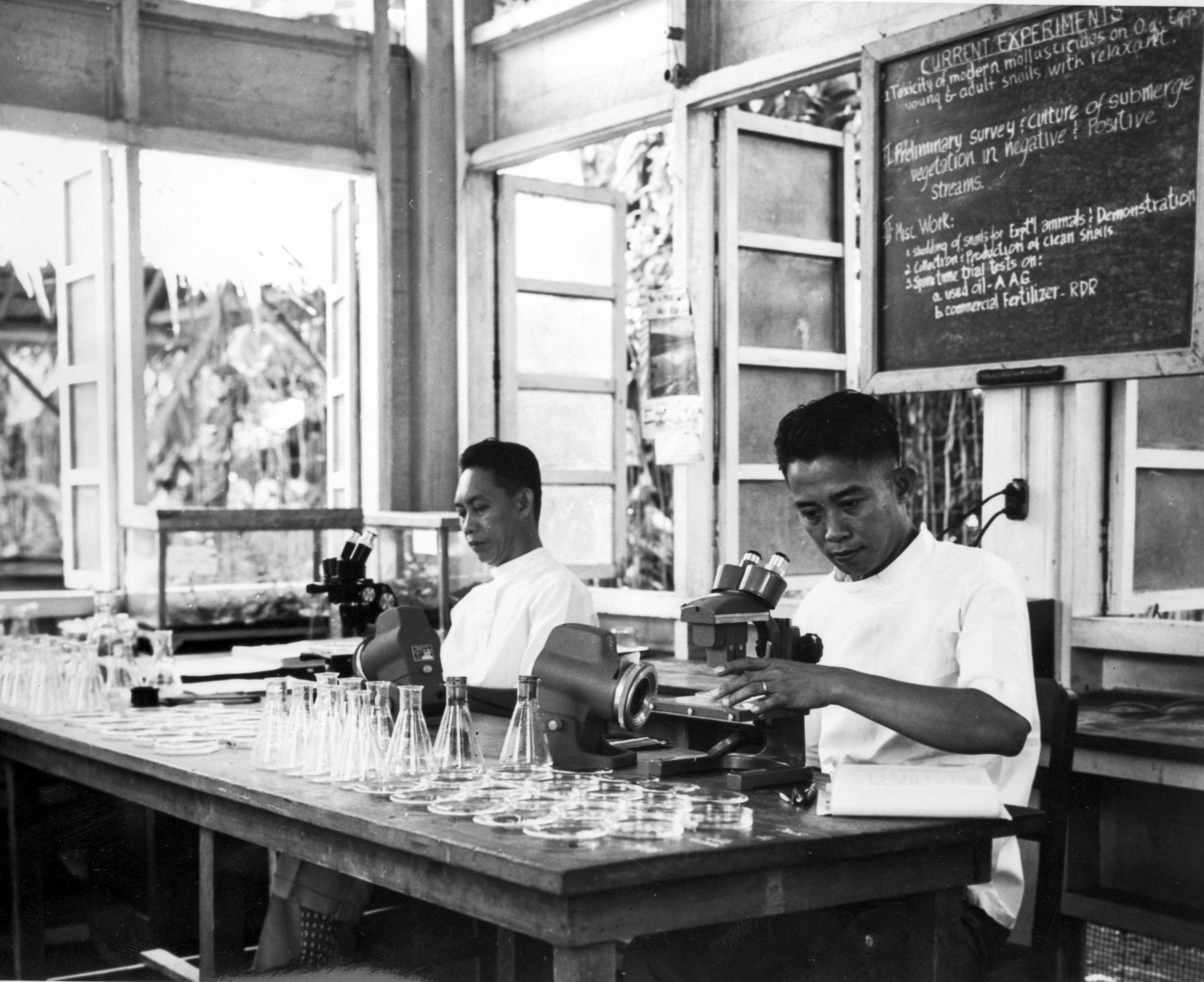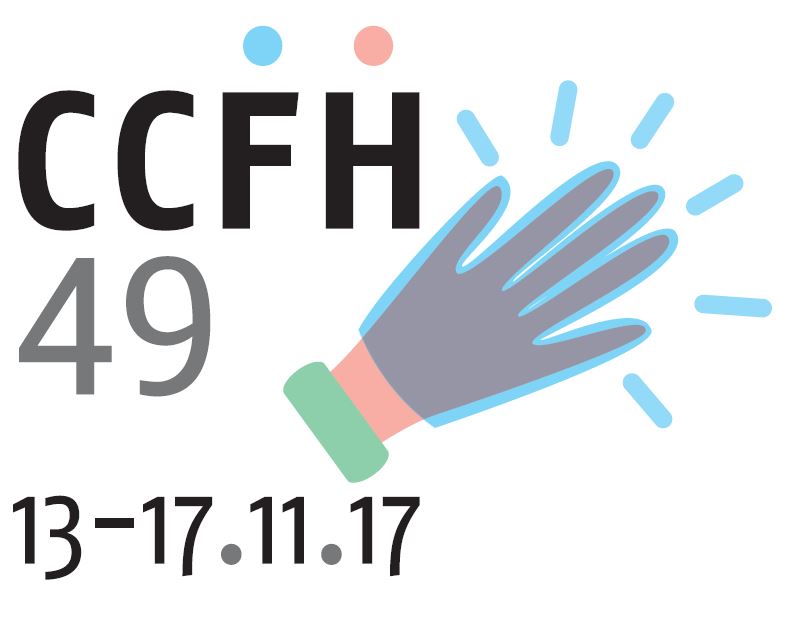Codex: the standard by which we measure success - Emilio Esteban
How can we change but remain the same?
Dr Emilio Esteban is Executive Associate for Laboratory Services in the United States Department of Agriculture Food Safety and Inspection Service, and chairs the Codex Committe on Food Hygiene currently meeting in Chicago USA.
As I sit today, living the 49th session of the Codex Committee on Food Hygiene, I find myself amazed that after 50 plus years of discussion, the objective remains the same, yet, things have changed. On May 1964, nine members met to discuss this topic; today there are over 250 participants representing 75 countries. Why is this? Well, the food being produced today on one side of the planet is consumed fresh on the opposite side within a few hours of harvesting and the type of foods and commodities traded have multiplied exponentially.

Philippines, August 1961 – laboratory technicians
The challenge we face
Tons of food are being produced, conveyed or consumed every day on our planet. The most significant challenge we face is the continuous evolution of the science that is the basis for the texts we develop. At the first CCFH meeting, we had no idea we would be updating our documents to address new technologies such as whole genome sequencing, nanotechnology to detect chemical contamination, and have real time communication systems to detect, inform, and correct any deficiency identified in the food production system.
So what are the challenges we foresee? The obvious would be some new food modalities, engineered food, new interventions to reduce hazards, the constant adaptation of pathogens to antimicrobial treatments, and yes, even private food standard systems driven by commercial interests.
I hope Codex standards will continue to be consensus-based, transparent, applicable and useful tools to assure food safety and fair trade worldwide
Regardless of where we find ourselves 50 years from now, one thing that I hope will remain constant is that Codex standards will continue to be consensus-based, transparent, applicable and useful tools to assure food safety and fair trade worldwide. As long as our objective remains true and we continually update the science that supports our decisions, the Codex process will be the standard by which we measure success.

Follow CCFH 49 on the meeting webpage
At the heart of the Codex mandate are the core values of collaboration, inclusiveness, consensus building and transparency. Governmental and non-governmental, public and private organizations alike play a vital role in ensuring Codex texts are of the highest quality and based on sound science.
Codex would have little authority in the field of international standard setting if it did not welcome and acknowledge the valuable contributions made by observers. Expert technical bodies, industry and consumer associations
contribute to the standard-setting process in a spirit of openness, collaboration and transparency.
Intergovernmental organizations (IGOs) and international non-governmental organizations (NGOs) can apply for observer status in Codex in order to attend and put forward their views at every stage of the standard-setting process.
 Current Codex Alimentarius Commission
Current Codex Alimentarius Commission
Codex: the standard by which we measure success - Emilio Esteban
How can we change but remain the same?
Dr Emilio Esteban is Executive Associate for Laboratory Services in the United States Department of Agriculture Food Safety and Inspection Service, and chairs the Codex Committe on Food Hygiene currently meeting in Chicago USA.
As I sit today, living the 49th session of the Codex Committee on Food Hygiene, I find myself amazed that after 50 plus years of discussion, the objective remains the same, yet, things have changed. On May 1964, nine members met to discuss this topic; today there are over 250 participants representing 75 countries. Why is this? Well, the food being produced today on one side of the planet is consumed fresh on the opposite side within a few hours of harvesting and the type of foods and commodities traded have multiplied exponentially.

Philippines, August 1961 – laboratory technicians
The challenge we face
Tons of food are being produced, conveyed or consumed every day on our planet. The most significant challenge we face is the continuous evolution of the science that is the basis for the texts we develop. At the first CCFH meeting, we had no idea we would be updating our documents to address new technologies such as whole genome sequencing, nanotechnology to detect chemical contamination, and have real time communication systems to detect, inform, and correct any deficiency identified in the food production system.
So what are the challenges we foresee? The obvious would be some new food modalities, engineered food, new interventions to reduce hazards, the constant adaptation of pathogens to antimicrobial treatments, and yes, even private food standard systems driven by commercial interests.
I hope Codex standards will continue to be consensus-based, transparent, applicable and useful tools to assure food safety and fair trade worldwide
Regardless of where we find ourselves 50 years from now, one thing that I hope will remain constant is that Codex standards will continue to be consensus-based, transparent, applicable and useful tools to assure food safety and fair trade worldwide. As long as our objective remains true and we continually update the science that supports our decisions, the Codex process will be the standard by which we measure success.

Follow CCFH 49 on the meeting webpage
 Codex and Observer
Codex and Observer
around the world since ancient times.
We might not always know where it comes from,
but we expect it to be available, safe and of good quality.










Leave a comment